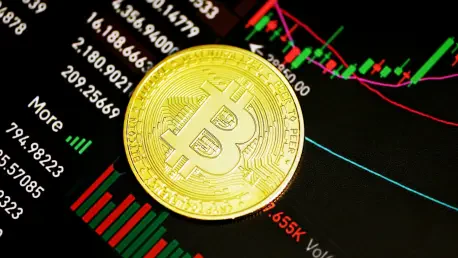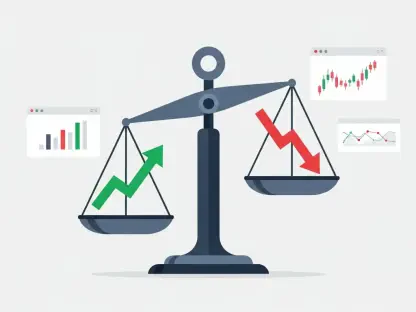In an era marked by intertwined global economies and rapid digital transformations, the formation of Twenty One Capital in 2025 represents a pivotal shift in the cryptocurrency landscape. As a newly established Bitcoin conglomerate, it emerged from a robust partnership among industry giants SoftBank, Tether Holdings SA, and Cantor Fitzgerald. Designed with a strategic vision to expand Bitcoin holdings and influence, Twenty One Capital is more than just a venture; it’s a symbol of Japan’s foray into digital asset prominence on the world stage. The company debuted with an impressive portfolio of over 42,000 Bitcoin, valued at approximately US$3.6 billion, instantly securing its position as one of the largest institutional Bitcoin holders globally. The strategic blueprint laid out by Twenty One Capital involves financing further acquisitions through innovative financial instruments, formulating a unique convergence of technology and finance. As the world keenly observes these developments, Twenty One Capital’s emergence underscores the shifting tectonic plates of global finance and Japan’s evolving role within them.
Twenty One Capital: Formation and Objectives
The inception of Twenty One Capital marks a significant event in the Bitcoin and broader financial arenas, with SoftBank, Tether Holdings SA, and Cantor Fitzgerald spearheading this collaboration. Each entity brings a wealth of expertise and influence, crafting a Bitcoin conglomerate poised to redefine digital asset management. This alliance not only positions Japan at the forefront of Bitcoin innovation but also underscores strategic moves towards enhancing global digital infrastructure. The eclectic mix of companies involved highlights a calculated approach to managing and acquiring significant Bitcoin assets. By enlisting Jack Mallers, a key figure in Bitcoin payment solutions, as its leader, Twenty One Capital underscores its mission to push the boundaries of Bitcoin integration. The blend of traditional financial stalwarts with cutting-edge cryptocurrency ideologies creates a multifaceted operating environment ready to tackle the evolving economic landscape.
With an impressive initial Bitcoin portfolio, Twenty One Capital has carved out a commanding position among the globe’s foremost institutional Bitcoin holders. Their strategic roadmap includes intriguing plans to expand their holdings, leveraging innovative financial tools such as convertible bonds and private equity placements. The aim is not merely asset expansion but recalibrating financial strategies to harness the power of Bitcoin. The use of a US$385 million convertible bond offering alongside a US$200 million private equity placement highlights effective asset management techniques. This innovative approach reflects a deep understanding of financial markets and the intricate dynamics of Bitcoin valuation. Such calculated and forward-thinking initiatives not only solidify Twenty One Capital’s market presence but also set a precedent, illustrating how new financial models align with cryptocurrency growth and integration.
Japan’s Economic Strategy
Japan’s economic strategies have long been characterized by nuanced policies, especially the yen carry trade, which significantly impacted international finance due to its low-interest-rate environment. This approach has facilitated capital outflows as investors seek higher returns, particularly in U.S. markets. However, the strategy’s volatility was starkly highlighted in July 2024, when the yen appreciated by 12% against the US dollar, causing considerable financial upheaval. This appreciation increased the cost of foreign debt repayments for investors, illuminating the inherent risks associated with Japan’s prevailing monetary policies. Such dynamics emphasize the intricate balance Japan maintains as it navigates economic impulses that shape both domestic and international financial landscapes.
SoftBank’s participation in Twenty One Capital goes beyond mere financial interests, aligning closely with Japan’s broader economic ambition to establish a formidable presence in the digital asset domain. As a strategic investor with deep connections to Japan’s governmental initiatives, SoftBank represents a vehicle through which Japan articulates its vision of technological advancement within the global economy. Twenty One Capital, therefore, is more than an economic entity; it is a testament to Japan’s commitment to embracing digital innovations and solidifying its economic influence. By fostering such ventures, Japan aspires to not only elevate its standing in global financial circles but also to carve out a space in the rapidly evolving digital asset sector. This alignment mirrors Japan’s proactive stance, emphasizing its adaptability and foresight in an era where technological advancements increasingly dictate geopolitical narratives.
Impact of the US Dollar and SWIFT System
The United States maintains a dominant position in global finance, primarily through the widespread reliance on the US dollar as the world’s primary reserve currency and its control over the SWIFT system. This supremacy allows the U.S. to exert significant geopolitical influence, notably through the imposition of economic sanctions that can sway international activities. However, the pervasive dominance of the US dollar has prompted nations to reassess their financial dependencies and explore alternative systems to mitigate reliance. This scenario has laid fertile ground for innovative financial systems to emerge, contributing to an increasingly diversified global financial ecosystem. Nations are now driven to seek independence from an American-centric monetary framework by adopting cutting-edge digital currencies and blockchains.
One manifestation of this financial diversification can be seen in the emergence of players like Twenty One Capital, symbolizing shifts away from exclusive reliance on the US dollar. By venturing into Bitcoin and digital assets, countries like Japan are taking tangible steps towards reconfiguring their financial infrastructures to lessen American oversight. This strategic pivot underscores a broader effort to foster economic resilience and reduce vulnerabilities associated with traditional currency reliance. Such movements are not only indicative of technological advancements but also reflect evolving global financial dynamics where economic independence and strategic positioning are paramount. The establishment of Bitcoin conglomerates serves as a testament to this transformative period in global finance, highlighting emerging trends toward a decentralized financial environment that’s rapidly gaining traction.
Tether’s Influence and Financial Landscape
Tether Holdings SA plays a pivotal role in the reshaping of contemporary financial dynamics, primarily through its issuance of the stablecoin USDT. Tether links the traditional and digital financial worlds with extensive holdings in U.S. government bonds, highlighting the intersect of blockchain stability with conventional finance. By the end of 2024, Tether had amassed over US$94 billion in government bonds, underscoring its significant financial influence. This dual role underscores Tether’s critical function in enhancing liquidity within digital assets and securing investor confidence. The presence of a stable digital coin pegged to an established currency provides a tangible bridge, bolstering the digital economy’s integration with conventional financial markets.
Tether has played an instrumental role in enabling digital asset transactions beyond traditional banking constraints, offering an appealing model for jurisdictions keen on achieving autonomy from the US dollar’s influence. Its network facilitates seamless digital asset trades, providing a financial avenue less exposed to conventional volatility. For nations intent on diversifying their financial systems, Tether’s infrastructure presents a viable pathway to cultivate independent cross-border financial interactions. This framework enables enhanced financial sovereignty while fostering a uniquely flexible financial ecosystem aligned with the fast-paced evolution of digital currencies. Through these dynamics, Tether’s influence within both traditional banking and cutting-edge digital exchanges underscores a transformative era in finance, reflecting an ever-growing desire for economic self-sufficiency.
Strategic Implications for Bitcoin
In the midst of intertwined global economies and swift digital transformation, the creation of Twenty One Capital in 2025 marks a significant shift in the cryptocurrency world. Emerging as a new Bitcoin conglomerate, it stems from a strong partnership between industry titans like SoftBank, Tether Holdings SA, and Cantor Fitzgerald. With a strategy aimed at expanding Bitcoin assets and sway, Twenty One Capital is more than a mere venture; it symbolizes Japan’s major step into the domain of digital assets globally. The company launched with a remarkable portfolio boasting over 42,000 Bitcoin, valued at approximately US$3.6 billion, promptly establishing itself as one of the leading institutional Bitcoin holders worldwide. The strategic framework devised by Twenty One Capital includes financing additional acquisitions through cutting-edge financial tools, creating a unique blend of technology and finance. As global attention focuses on these developments, Twenty One Capital highlights the changing elements of international finance and Japan’s emerging role in it.









